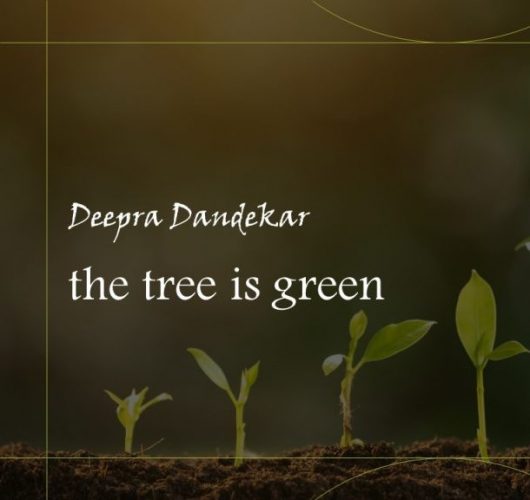When Shalmali’s teenaged granddaughter, Udaya embraced her to wish her for mother’s day, Shalmali froze. Then, she pushed Udaya away, who took no notice. Udaya had long accepted Ajji’s rejections as normal, and she did not doubt Ajji’s love. It was normal for Ajji to push people away.
While Shalmali’s life had not been easy, it hadn’t been proverbially tough either. Shalmali’s husband wasn’t abusive or violent; he was disinterested and apathetic – not the marrying kind. It showed in the way he quickly accepted the very first proposal that came his way, without even meeting the girl – just to get it over. In the 1950s it was difficult for children to tell their families that they were not the marrying kind.
Shalmali had met him thrice before marriage: first, when his family came to see her and fix the wedding; second, at a relative’s wedding, and third, at their own engagement. They were strangers, and her husband did not change that.
They were both products of a strictly gendered, patriarchal, urban society, living in miniscule apartments, but heavily populated households. Men and women functioned in such scenarios of distanced but enforced proximity by ignoring each other, outside banal transactions that necessitated information sharing. Children born in such households never learned to question their elders. And Shalmali never questioned her husband.
Her husband’s apathy and disinterest had only grown in the next 26 years. He finally passed away one day, without leaving Shalmali much material inheritance or emotional remembrance.
Shalmali resumed daily life in a changed avatar that did away with impediments like bangles and chains. She felt her bare wrists and fingers with relief as she washed her hands. These were finally her own. She was pleasantly surprised, looking at her bare neck. It looked the same way as it did when she was a child. She peered seldom into the small, cracked plastic-framed mirror on the bathroom wall. It was the only mirror in the house, and it hung at her husband’s height where he shaved twice a week. Shalmali hadn’t bothered to lower that mirror.
Then, there had been Daya, their daughter, who, tiring of her apathetic, affection-less mother, had left home one day without telling Shalmali. Her parents were awkward, and they had had little emotion for her, each other, or themselves. As if wanting to punish Shalmali, Daya ran away with a classmate, and Shalmali, a widow by then, went on as if she hadn’t noticed.

But Daya’s marriage had succeeded. 3 years later, Shalmali received a letter from Singapore. The envelope contained pictures. Daya looked radiant, standing next to a handsome man called Udai. The letter contained another picture: a little innocent and cherubic angel, with a beautiful smiling face – baby Udaya’s passport photo.
Shalmali’s eyes prickled. It was as if she hadn’t ever known Daya. Daya, her own daughter, was a stranger. But she had also never wanted to know Daya. She had physically managed but emotionally ignored the child, and Daya had retreated into her shell, and finally left.
Now Shalmali grew apprehensive. Would the new Daya force Shalmali into uncomfortable emotional interactions? Blame her? Pick fights with about the past, and engineer awkward confrontations?
Shalmali did not reply to Daya’s letter. Then, a phone call came from Singapore. Shalmali was curious, but also squirmed uncomfortably, as she clutched the phone and spoke to Daya after 3 years. But Daya chattered on as if nothing had happened. It was tiring, and strange that Daya simply ignored the past – their joint past of telling themselves in relationships, that they did not really care.
Just as she was getting used to these phone calls, another letter arrived. This time, Daya and Udai were requesting Shalmali to play guardian to their 12-year-old Udaya, who had gained admission to a nearby residential school. Could Udaya come “home” to Shalmali on weekends?
Shalmali had seen Udaya’s photos, and it is true: she felt a deep, unaccustomed curiosity about the child, who was a merge of Daya and herself. It did not feel uncomfortable; it felt pleasant.
Still, Daya and Udai’s request came as a shock. The first question Shalmali asked was: why? Why would Udaya spend weekends with Shalmali? Daya was silent. Udai finally arranged everything. He told Shalmali that Udaya would henceforth spend weekends with her, and that he would pay Shalmali every month for looking after his daughter.
This was when the uncomfortable cloud, first began developing cracks. Shalmali felt vaguely excited about Udaya’s arrival, a feeling that superseded the usual discomfort and apathy. She began experiencing a new, grudging and sometimes alarming pull towards Udaya.
Though initially resentful of being landed with childcare, the money had helped. Suddenly, Shalmali could afford to live more comfortably. And Udaya would surely bring Daya and Udai back into Shalmali’s life! The miserable past could be forgotten. Shalmali found herself hammering a new nail, lower down on the bathroom wall. She lowered the old mirror to Udaya’s height.
Something unexpected was happening. The final change happened the day little Udaya set foot into Shalmali’s life. Shalmali’s life changed as fell in love with the child. Udaya was adorable: engaging, loving, trusting, kind, friendly, intelligent, gentle, capable, and a strong decision-maker, even at her age.
Udaya was Ajji’s shadow, her right-hand man, and co-conspirer. She intuitively understood when Ajji needed her bottle of Zandu balm or Kailash Jeevan. Little Udaya mimicked film stars, sang songs, jumped around the house like a frog, and made funny faces. Shalmali found herself laughing, and smiling all the time in Udaya’s company.
And then Udaya’s happy mother’s day hug came – doubtless, something new-fangled at school. But what did it mean, Shalmali wondered – this happy mother’s day? What sense did it make in her apathetic and silent life that had craved safety and stability through generating habits, and by retreating from emotional investment?
Stroking the girl’s smooth forehead as she slept, Shalmali’s eyes prickled. Was this mother’s day hug powerful enough to transform Shalmali’s life? Does love that comes once only, and sometimes at the end, have the power to redeem a life full of empty waiting? As she gently embraced the sleeping Udaya and muttered a thank you, Shalmali hardly knew.
*









Add comment